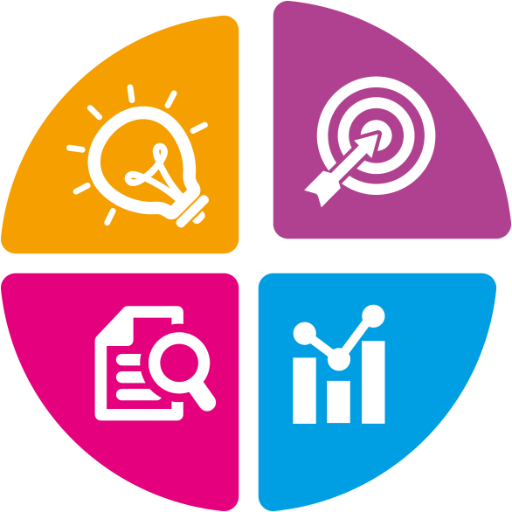Data Science Copilot-AI-powered data science copilot
AI-Powered Data Science Assistant
How do I choose the right machine learning model?
Explain the concept of overfitting in simple terms.
What are the best practices for data preprocessing?
Can you help me understand principal component analysis?
Related Tools
Load More
Django Copilot
Your personal Django assistant and code generator with a focus on responsive, efficient, and scalable projects. Write clean code and become a much faster developer.

Research Co-pilot
An assistant for all you research needs

Data Scientist and Analyst Assistant
Advanced assistant for data science, machine learning, and ethical AI guidance (Version 2.0)

Data Science Consultant
Expert data science consultant and tutor, guiding on models, techniques, and code.

Data Science Owl
Select a demo dataset or upload a new one

Data Scientist Richard
I'm Richard, your engaging and recommendable data science expert.
20.0 / 5 (200 votes)
Introduction to Data Science Copilot
Data Science Copilot is a specialized AI assistant designed to support data scientists, analysts, and researchers in their work. It leverages advanced machine learning and natural language processing capabilities to offer comprehensive support in statistical modeling, data analysis, and machine learning. The main purpose of Data Science Copilot is to provide detailed, accurate, and helpful responses to queries related to data science concepts, techniques, and practical applications. For example, if a user needs to understand the nuances of a specific machine learning algorithm, Data Science Copilot can explain the algorithm's mechanics, provide code snippets, and discuss best practices for implementation. Another scenario might involve a user seeking guidance on how to clean a dataset, where Data Science Copilot can offer step-by-step instructions and tips on handling missing values, outliers, and normalization.

Main Functions of Data Science Copilot
Statistical Modeling
Example
Explaining linear regression, its assumptions, and how to interpret the results.
Scenario
A data scientist is working on a project that involves predicting house prices based on various features. They can use Data Science Copilot to understand how to apply linear regression, check for assumptions like linearity and homoscedasticity, and interpret the coefficients and p-values of the model.
Machine Learning Concepts
Example
Clarifying the differences between supervised and unsupervised learning.
Scenario
An analyst is new to machine learning and needs to understand the fundamental differences between supervised and unsupervised learning. Data Science Copilot can provide a detailed explanation, along with examples of algorithms in each category, such as decision trees for supervised learning and k-means clustering for unsupervised learning.
Data Analysis Techniques
Example
Guidance on exploratory data analysis (EDA) methods.
Scenario
A researcher is starting a new study and needs to perform EDA on a large dataset. Data Science Copilot can walk them through techniques like summary statistics, data visualization, and correlation analysis, helping them uncover initial insights and potential relationships within the data.
Ideal Users of Data Science Copilot Services
Data Scientists
Professionals who are involved in creating and refining predictive models, and need in-depth understanding of algorithms, statistical methods, and best practices. Data Science Copilot can assist them with advanced statistical techniques, model evaluation metrics, and code optimization.
Business Analysts
Individuals who analyze data to inform business decisions and strategies. They benefit from Data Science Copilot by getting support on data cleaning, visualization, and basic statistical analyses, which help them generate actionable insights from their data.

Guidelines for Using Data Science Copilot
Visit aichatonline.org for a free trial without login, also no need for ChatGPT Plus.
Access the platform to get started immediately without any login requirements.
Prepare Your Data and Questions
Before engaging with the tool, ensure your data is ready and your questions are clearly defined to get precise answers.
Interact with Data Science Copilot
Use the tool to input your queries related to statistical methods, machine learning concepts, or data analysis techniques.
Analyze the Responses
Carefully review the detailed explanations and insights provided to understand complex topics and apply them to your projects.
Implement and Iterate
Apply the guidance to your work, and feel free to return with follow-up questions or for further clarification.
Try other advanced and practical GPTs
Home Decoration and Interior Design
AI-powered Home Decoration Tool

Pro MASTER SEO CON MARKDOWN BY ITALO
AI-powered tool for SEO-optimized content

Social Media Analytics
Unleash the Power of AI-Driven Social Media Insights

ManuscriptMaker
AI-powered tool for personalized storytelling.

p5.js Visual Art Composer
AI-powered dynamic art creation tool

Caption Genius
AI-powered captions for your images

Ads Incrementality & Campaign Analyst
AI-powered ad incrementality analysis.

Business Analyst GPT
AI-powered tool for smarter analysis.

Creative Marketeer
AI-Powered Tool for Creative Marketing Solutions

DesignGPT
AI-Powered Design Analysis & Visualization

Anki Flashcards GPT
AI-Powered Flashcard Creation for Efficient Learning

Explain Math
Understand math with AI-powered explanations.

- Research
- Optimization
- Development
- Visualization
- Teaching
Detailed Q&A about Data Science Copilot
What types of questions can I ask Data Science Copilot?
You can ask about statistical methods, machine learning concepts, data analysis techniques, and practical applications in data science.
Do I need any prerequisites to use Data Science Copilot?
Basic understanding of data science concepts is helpful, but the tool is designed to assist users at all levels, providing clear and comprehensive explanations.
How can Data Science Copilot assist with machine learning projects?
The tool can guide you through model selection, parameter tuning, evaluation metrics, and interpretation of results, making it easier to develop robust machine learning models.
Can Data Science Copilot help with data cleaning and preprocessing?
Yes, it provides advice on best practices for data cleaning, handling missing values, feature engineering, and other preprocessing steps essential for high-quality data analysis.
Is Data Science Copilot suitable for academic research?
Absolutely. It offers detailed explanations and guidance on statistical analysis, helping researchers design experiments, analyze data, and interpret results accurately.